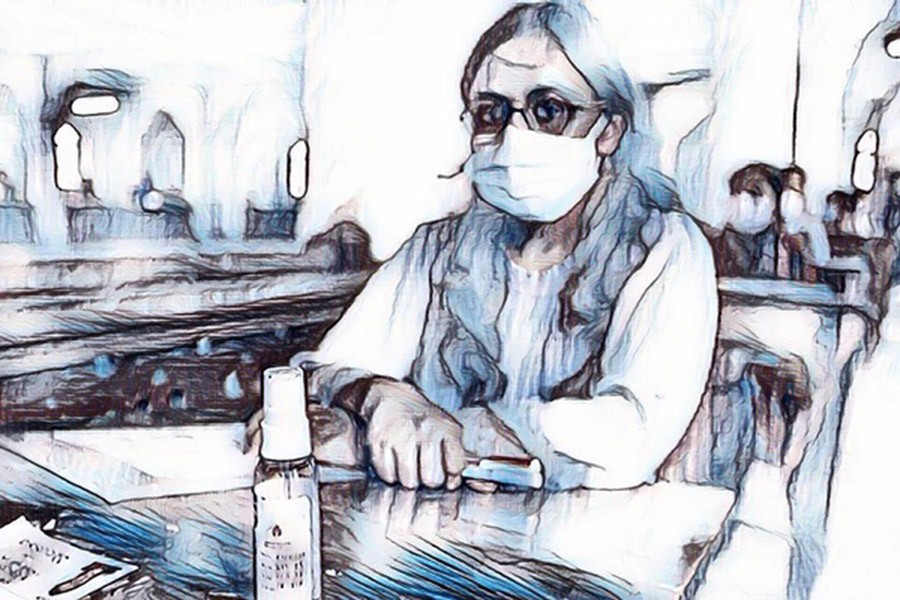
Published :
Updated :

Covid-related complications may linger even for a year after recovering from the disease, according to an IEDCR study that focused on patients in Bangladesh.
The research by the Institute of Epidemiology, Disease Control and Research also indicates that individuals struggling with chronic hypertension or diabetes may be at 2-3 times higher risk of suffering post-Covid complications.
IEDCR’s Field Epidemiology Training Programme, with assistance from the United States’ Center for Disease Control (CDC), carried out the study following the initial symptoms shown by Ccovid-infected patients.
The number of samples used in the study was not revealed by the IEDCR that published the findings on its website, says a bdnews24.com report.
The initial symptoms of contracting the virus include fever, cold, sneezing, coughs, throat-ache, breathing issues, lowered senses of taste or smell.
However, these issues may linger even after recovering from the disease.
IEDCR researcher Mushtuq Husain said, “People can have issues in their physical systems despite recovering [from Covid]. Among them are hypertension, rise in blood sugar, sleeplessness, chest pain, mental issues, loss of memories, irritation and irregular heartbeats.”
The World Health Organisation calls these health issues post-Covid conditions.
According to the study carried out on patients, 78 per cent of the patients who recovered from the disease at least three months ago showed these post-Covid symptoms, while 70 per cent of them showed the signs six months later. And 68 per cent of individuals displayed these signs nine months later and 45 per cent after a year.
“It is evident that patients struggling with complications like high blood pressure and diabetes need to take medications prescribed by the doctor to lessen their sufferings.”
The IEDCR also said that patients with issues of high blood pressure on regular medications prescribed by their doctors are at a 9.0 per cent lower risk of showing such symptoms. Similarly, the risks for diabetes patients in such cases are lowered by 7.0 per cent.


 For all latest news, follow The Financial Express Google News channel.
For all latest news, follow The Financial Express Google News channel.